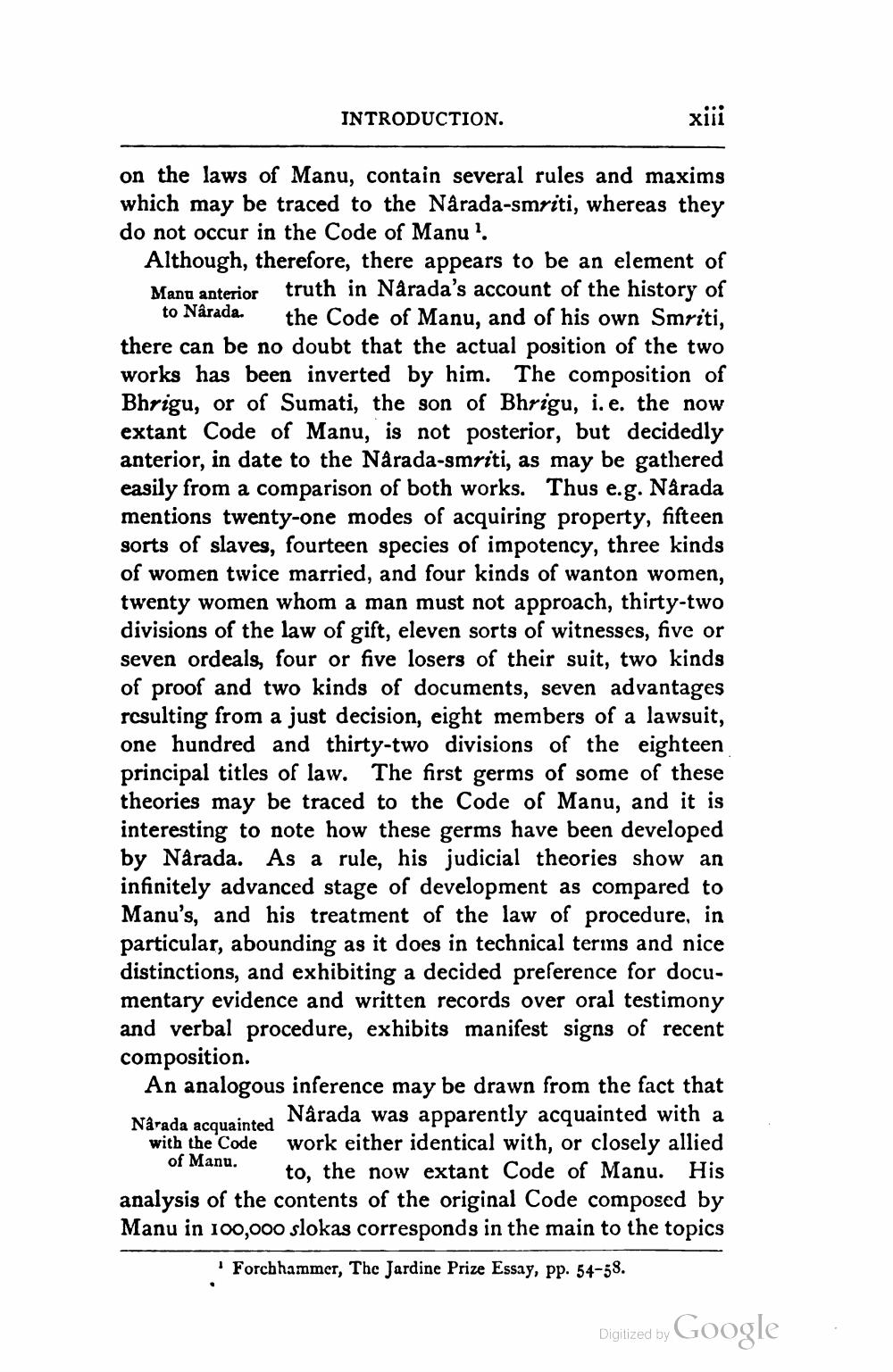________________
INTRODUCTION.
xiii
on the laws of Manu, contain several rules and maxims which may be traced to the Nárada-smriti, whereas they do not occur in the Code of Manu l.
Although, therefore, there appears to be an element of Mano anterior truth in Narada's account of the history of
to Närada. the Code of Manu, and of his own Smriti, there can be no doubt that the actual position of the two works has been inverted by him. The composition of Bhrigu, or of Sumati, the son of Bhrigu, i.e. the now extant Code of Manu, is not posterior, but decidedly anterior, in date to the Narada-smriti, as may be gathered easily from a comparison of both works. Thus e.g. Närada mentions twenty-one modes of acquiring property, fifteen sorts of slaves, fourteen species of impotency, three kinds of women twice married, and four kinds of wanton women, twenty women whom a man must not approach, thirty-two divisions of the law of gift, eleven sorts of witnesses, five or seven ordeals, four or five losers of their suit, two kinds of proof and two kinds of documents, seven advantages resulting from a just decision, eight members of a lawsuit, one hundred and thirty-two divisions of the eighteen principal titles of law. The first germs of some of these theories may be traced to the Code of Manu, and it is interesting to note how these germs have been developed by Nárada. As a rule, his judicial theories show an infinitely advanced stage of development as compared to Manu's, and his treatment of the law of procedure, in particular, abounding as it does in technical terins and nice distinctions, and exhibiting a decided preserence for documentary evidence and written records over oral testimony and verbal procedure, exhibits manifest signs of recent composition.
An analogous inference may be drawn from the fact that Narada acquainted Närada was apparently acquainted with a with the Code work either identical with, or closely allied of Manu.
to, the now extant Code of Manu. His analysis of the contents of the original Code composed by Manu in 100,000 slokas corresponds in the main to the topics
Forchhammer, The Jardine Prize Essay, pp. 54-58.
Digitized by Google




